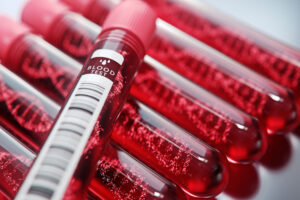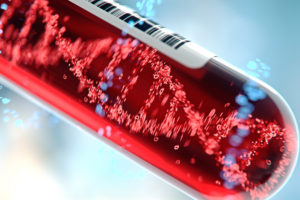What is the Purpose of Blood Tests?
Purpose of Blood Tests
Blood tests are a standard part of routine and preventive healthcare. Your healthcare provider will often order a blood test before or following a physical examination. Also a doctor may order blood tests to evaluate specific conditions.
However, blood tests are used to analyze the substances within your blood, including cells, and proteins, to provide insights into your overall health and identify potential health issues.
In addition, they are a common diagnostic tool used for various purposes, including diagnosing diseases, monitoring chronic conditions, and assessing organ function.
There are many different blood tests. Some tests focus on your blood cells and platelets. Some evaluate substances in your blood such as electrolytes, proteins and hormones. Others measure certain minerals in your blood.
Regardless of why you’re having a blood test, it’s important to remember that blood tests help healthcare providers diagnose health issues. But blood test results aren’t diagnoses. An abnormal blood test result may not mean you have a serious medical condition.

When Would I need to have a Blood Test?
Your blood plays a big role in your overall health and contains a lot of information about what may be going on in your body. That’s one reason why blood tests are a common medical test. A healthcare provider may do a blood test because:
- It’s time for your regular physical. During a checkup, your provider may order blood tests to check on your overall health. They may order a blood test that evaluates many parts of your blood, such as a complete blood count (CBC), basic metabolic panel (BMP) or a comprehensive metabolic panel.
- Your provider recommends screening tests. Screening tests are done before you have any symptoms. They may recommend screening tests if you’re at risk of developing certain conditions, such as cancer. For example, if you’re at risk for developing coronary artery disease, your healthcare provider may order several blood test to evaluate that risk.
- You don’t feel well. If you have specific symptoms, your provider may order blood tests to determine what’s causing them. For example, if you have symptoms that may be signs you’re pregnant, your provider will do a pregnancy test. The blood test looks for a specific hormone your body only ever makes when you’re pregnant.
- You have a medical condition that happens when certain genes change (mutate). Depending on your situation, your blood cells and platelets may show information about the specific changes. Understanding which genes changed may help your provider plan your treatment.
- You’re receiving treatment for a medical condition. Your provider may use regular blood tests to see if treatment is working.
- You may have inherited certain genetic mutations that cause medical conditions. Your provider may take blood samples for genetic analysis so you know if you’re at risk of developing a specific condition.
What do blood tests show?
In fact, a blood test shows changes in your body. Blood test results don’t show a complete picture. Instead, they’re a kind of snapshot. After seeing that snapshot, your provider may do other blood tests to get a closer view. Here’s a glimpse of what your healthcare provider may see with blood tests:
- The tests show if your blood is working as it should. For example, your red blood cells carry oxygen throughout your body. A blood test may show you have low red blood cell levels (anemia). If healthcare providers look at your cells under a microscope, they may see your red blood cells are larger than normal or shaped differently than normal red blood cells. These differences may be signs of blood disorders or blood cancers.
- They show if you have normal levels of enzymes and electrolytes . Enzymes are proteins that help speed up the chemical reactions that build up and break down substances in your body. Electrolytes do several things, such as helping your body regulate chemical reactions and maintaining the balance between fluids inside and outside your cells.
Types of Blood Tests
During a routine physical, a doctor may order one of the following tests:
Complete Blood count
A complete blood count (CBC) measures a variety of the blood’s components, such as:
- Hemoglobin
- Platlets
- Red blood cells
- White blood cells
- mean corpuscular volume (MCV) — the average size of a person’s red blood cells
- hematocrit — how much space red blood cells take up in the blood
A CBC test helps a doctor identify blood disorders or diseases, such as anemia, issues with clotting, inflammation, infection, or immune system immune system disorders. A person will need to fast before a CBC test only if their doctor asks them to.
Blood Enzyme Tests
Blood enzyme tests measure the levels of specific enzymes in the body. The body produces enzymes to help control chemical reactions within the body.
Enzyme blood tests can help a doctor identify specific health problems, including a heart attack. If a doctor suspects a heart attack, they will check the levels of the cardiac troponin enzyme, which the heart releases when it is injured.
Blood Clotting Tests
A blood clotting test, also known as a coagulation panel, looks for a protein that helps the blood to clot. A doctor may order this test if they suspect the person may have a blood clotting disorder.
If a person is taking warfarin or other blood thinning medications, a doctor will likely use a specific blood clotting test as part of routine monitoring.
Lipoprotein Panel
If a doctor wants to assess a person’s risk for developing coronary heart disease or other atherosclerotic problems, they will likely order a lipoprotein, or lipid, panel. A lippoprotein panel will provide information about a person’s:
- Low-density lipoprotein (LDL) cholesterol level
- High-density lipoprotein (HDL) cholesterol level
- Total cholesterol level
- Triglycerides level in the blood
According to the Department of Health and Human Services, a person will need to fast for 8 to 12 hours before a lipoprotein panel.
If the results indicate abnormal levels of any cholesterol or triglycerides, it could indicate that the person is at higher risk of developing cardiovascular disease.
Basic Metabolic Panel
The basic metabolic panel (BMP) measures the levels of different chemicals found in the plasma portion of the blood.
The BMP, also known as a blood chemistry 8 test, provides information about the bones, muscles, and organs.
A doctor will tell an individual whether they need to fast before a BMP test, and for how long.
BMP tests look at the following:
- Uncorrected calcium levels: Abnormal calcium levels could indicate a person has an underlying condition related to their kidneys or bones, cancer, malnutrition, or other diseases.
- Glucose level: Higher than normal blood glucose levels could indicate a person has diabetes or is at risk of developing diabetes. Some people may need to fast before a blood glucose test.
- Kidneys: The presence of excess waste products in the blood, such as blood urea nitrogen (BUN) and creatinine, can indicate a problem with the kidneys.
- Electrolytes: The presence of abnormal electrolyte levels could indicate an issue with dehydration, kidneys, or other underlying conditions.
Comprehensive Metabolic Panel
Comprehensive metabolic panels (CMP) include all the blood tests done as part of a basic metabolic panel. Additional blood tests include:
- Albumin Blood Test: Albumin is a protein in your blood plasma. This test checks on kidney and liver function.
- Alanine Transaminase (ALT): Healthcare providers use this test to assess liver health.
- Alkaline phosphate (ALP): High levels of this enzyme may indicate liver disease or certain bone disorders.
- Ammonia Levels: Blood tests will show the amount of ammonia in your blood. High ammonia levels may be a sign of liver and kidney damage.
- Bilirubin Blood Test: Bilirubin is a substance in your liver’s bile. Too much bile in your blood may be a sign of liver issues.
- Aspartate Transferase: Sometimes called AST, this test measures the amount of the enzyme aspartate transferase in your blood. Providers use this test to assess liver health.
Electrolyte Panel
Electrolytes are minerals in your blood. Imbalance with electrolytes may be a sign of issues with your heart, kidneys or your lungs. An electrolyte panel includes all electrolyte tests in BMPs and CMPs. Additional electrolyte levels tested include magnesium and anion gap. Magnesium supports your brain, heart and muscles. Anion gap tests check the acid-base balance in your blood.

Biospecimens
Bay Biosciences is a global leader in providing researchers with high quality, clinical grade, fully characterized human tissue samples, bio-specimens, and human bio-fluid collections.
Human biospecimens are available including cancer (tumor) tissue, cancer serum, cancer plasma, cancer peripheral blood mononuclear cells (PBMC). and human tissue samples from most other therapeutic areas and diseases.
Bay Biosciences maintains and manages its own biorepository, the human tissue bank (biobank) consisting of thousands of diseased samples (specimens) and from normal healthy donors for controls, available in all formats and types.
In fact, our biobank procures and stores fully consented, de-identified and institutional review boards (IRB) approved human tissue samples, human biofluids such as serum samples, plasma samples from various diseases and matched controls.
Also, all our human tissue collections, human biospecimens and human biofluids are provided with detailed, samples associated patient’s clinical data.
In fact, this critical patient’s clinical data includes information relating to their past and current disease, treatment history, lifestyle choices, biomarkers, and genetic information.
Additionally, patient’s data associated with the human biospecimens is extremely valuable for researchers and is used to help identify new effective treatments (drug discovery & development) in oncology, and other therapeutic areas and diseases.
Bay Biosciences banks wide variety of human tissue samples and human biological samples, including fresh frozen human biospecimens cryogenically preserved at – 80°C.
For example fresh frozen tissue samples, tumor tissue samples, formalin-fixed paraffin-embedded (FFPE), tissue slides, with matching human bio-fluids, whole blood and blood-derived products such as human serum, human plasma and human PBMCs.
Bay Biosciences is a global leader in collecting and providing human tissue samples according to the specified requirements and customized, tailor-made collection protocols.
Please contact us anytime to discuss your special research projects and customized human tissue sample requirements.
Types of Biospecimens
Bay Biosciences provides human tissue samples (human specimens) and human biofluids from diseased and normal healthy donors which includes:
- Peripheral whole-blood
- Amniotic fluid
- Bronchoalveolar lavage fluid (BAL)
- Sputum
- Pleural effusion
- Cerebrospinal fluid (CSF)
- Serum (sera)
- Plasma
- Peripheral blood mononuclear cells (PBMC)
- Saliva
- Buffy coat
- Urine
- Stool samples
- Aqueous humor
- Vitreous humor
- Kidney stones (renal calculi)
- Other bodily fluids from most diseases including cancer.
Moreover, we can also procure most human biospecimens and human biofluids, special collections and requests for human samples that are difficult to find. All our human tissue samples and human biofluids are procured through IRB-approved clinical protocols and procedures.
In addition to the standard processing protocols, Bay Biosciences can also provide human biofluids such as human plasma, human serum, and human PBMCs bio-fluid samples using custom processing protocols; you buy donor-specific collections in higher volumes and specified sample aliquots from us.
Bay Biosciences also provides human biospecimens from normal healthy donors; volunteers, for controls and clinical research, Contact us Now.
- 日本のお客様は、ベイバイオサイエンスジャパンBay Biosciences Japanまたはhttp://baybiosciences-jp.com/contact/までご連絡ください。


